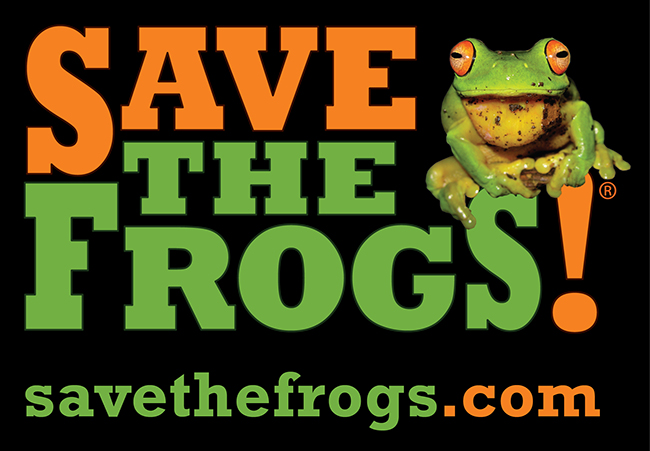SAVE THE FROGS!
World Summit Online 2020
In an effort to spread the amphibian conservation knowledge far and wide, SAVE THE FROGS! is organizing the 2020 SAVE THE FROGS! World Summit Online, which will bring together amphibian conservation experts from around the world. The World Summit will take place April 24th & 25th, in celebration of the 12th Annual Save The Frogs Day.
If you seek frog saving knowledge and inspiration, the SAVE THE FROGS! World Summit is for you! Enter your contact info into the form and we will email you event details. The event is free to attend, and we encourage you to share this page with your friends, family and colleagues.
In an effort to spread the amphibian conservation knowledge far and wide, SAVE THE FROGS! organized the 2020 SAVE THE FROGS! World Summit Online, which brought together amphibian conservation experts from around the world. The event took place April 24th & 25th, 2020 in celebration of the 12th Annual Save The Frogs Day.
The 2020 SAVE THE FROGS! World Summit Online was a huge success, with 21 speakers, 11 hours of presentations and 515 registrants representing 39 countries. As with all previous World Summits, the event was free for all to attend.
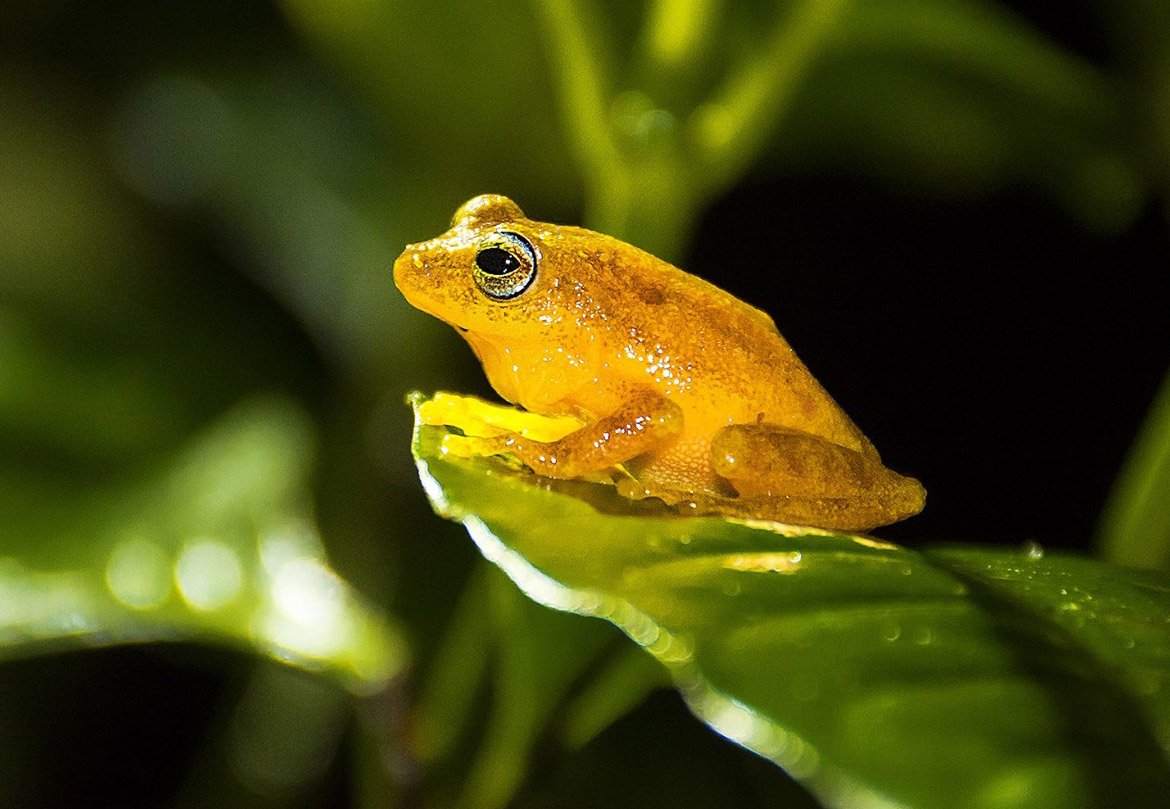
Photo of Coorg Yellow Bush Frog (Raorchestes luteolus) courtesy World Summit Speaker Anuj Shinde
“I appreciate the efforts of you and your team for successful completion of the World Summit. Covid pandemic could not disturb this frog conservation mission. Cheers.”
— Dr. Krishan Sharma, India
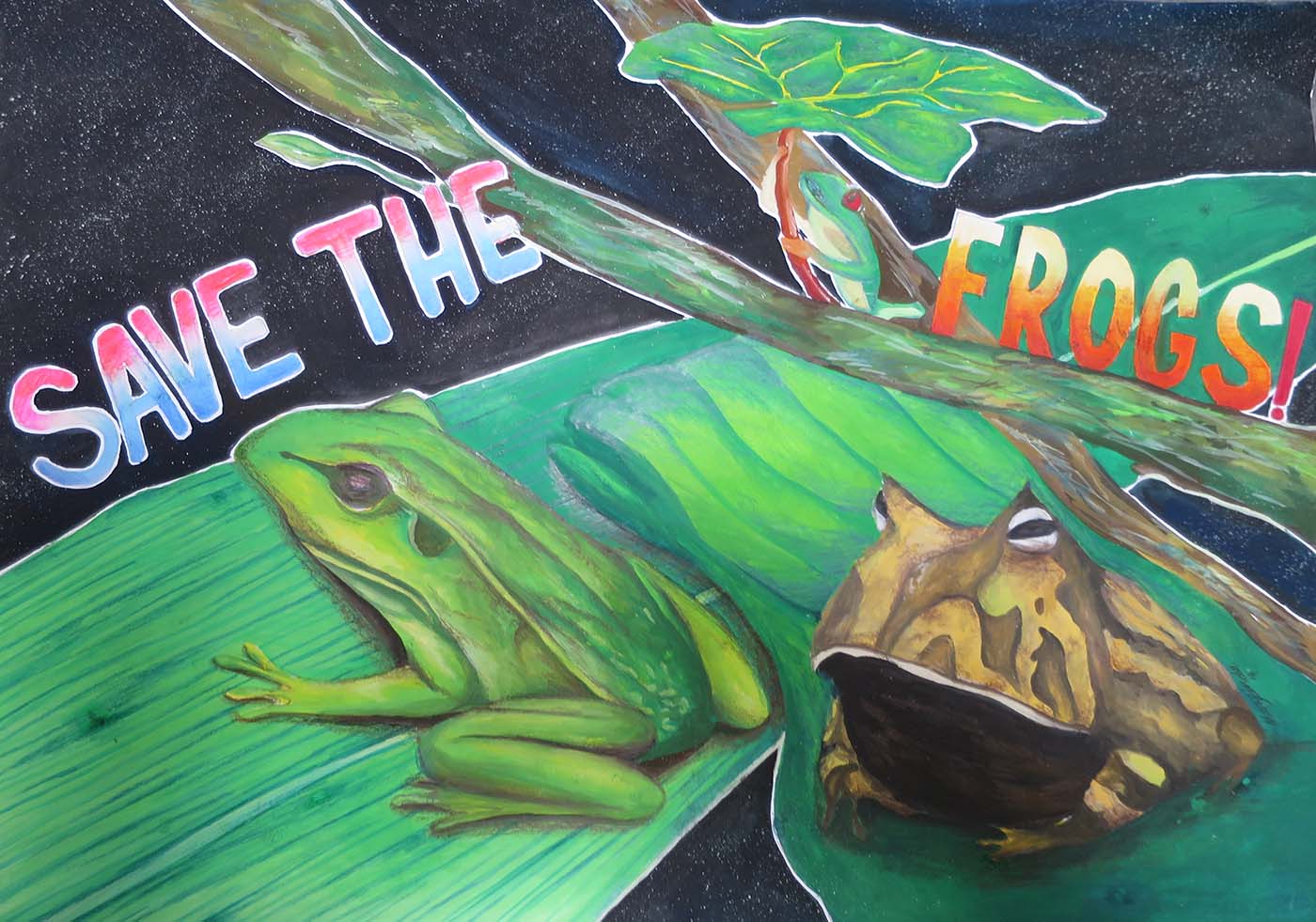
And now...
Meet the Presenters
We are pleased to bring together the following amphibian biologists and environmental conservationists, to raise awareness for endangered amphibians and provide you with numerous ways you can assist threatened wildlife and ecosystems in your own community
Dr. Kerry Kriger
SAVE THE FROGS! Founder, Executive Director, Ecologist & Webmaster
USA
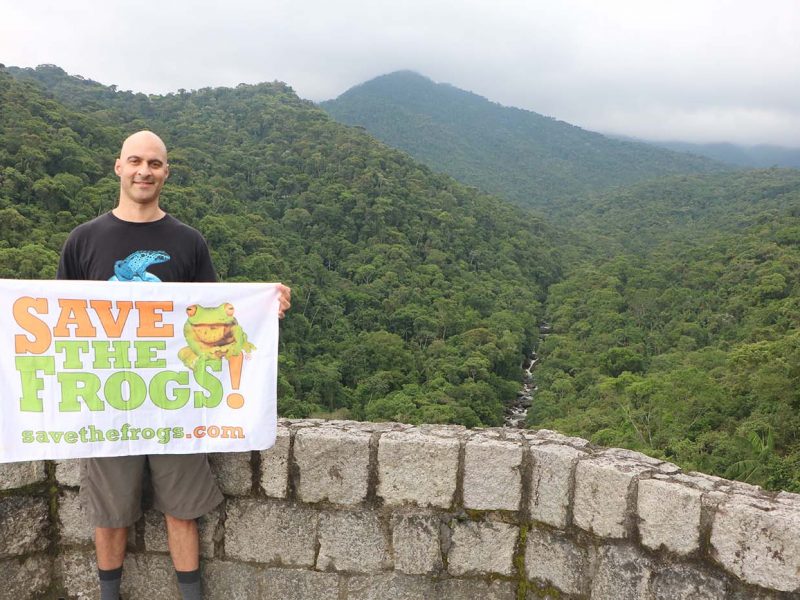
Dr. Kerry Kriger is the Founder & Executive Director of SAVE THE FROGS!, a nonprofit organization dedicated to protecting amphibian populations. Dr. Kriger has given over 400 presentations on amphibian conservation in 19 countries. Under his leadership, SAVE THE FROGS! has protected, restored and created habitat for endangered amphibians; successfully campaigned for city, county, state and federal legislation to protect amphibians; and coordinated over 2,000 educational events in 62 countries.
Dr. Kriger holds a Ph.D. in Environmental Science from Griffith University in Gold Coast, Australia, and a Bachelor of Science degree in Mechanical Engineering from the University of Virginia in Charlottesville, VA. He is a recognized expert on the amphibian disease chytridiomycosis, a topic on which he has published 20+ articles in peer-reviewed international scientific journals. Dr. Kriger’s amphibian conservation efforts have been supported by the National Geographic Society, the Disney Worldwide Conservation Fund, Patagonia and various philanthropic organizations throughout the world.
Gilbert Adum
SAVE THE FROGS! Ghana
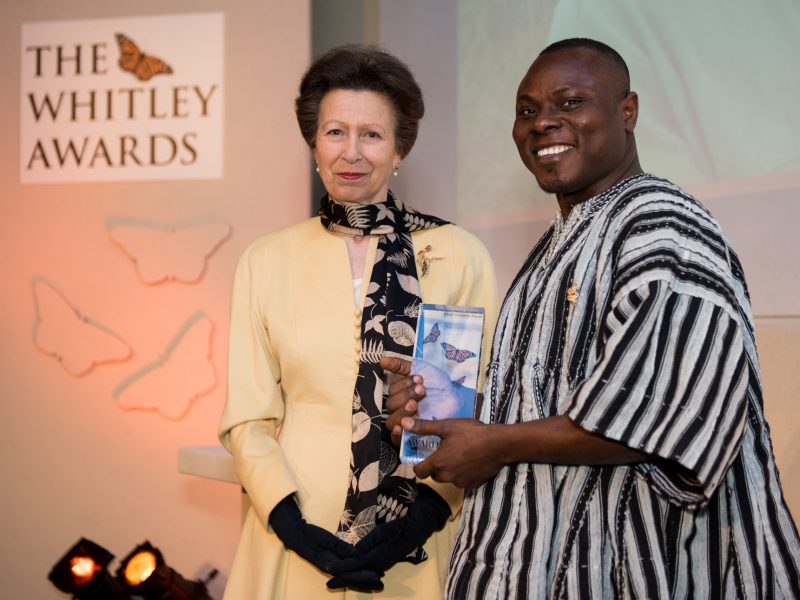
Gilbert Adum is the Co-Founder and Executive Director of SAVE THE FROGS! Ghana, West Africa’s leading organization dedicated to amphibian conservation. Gilbert is the first Ghanaian laureate of the prestigious Green Oscars, for his innovative work that brought the Giant Squeaker Frog back from the brink of extinction. Gilbert is also a recipient of the prestigious Miriam Rothschild Conservation Leadership Award (2017) & Alexander von Humboldt Research Fellowship (2015).
Dr. Gururaja KV
Srishti Institute of Art Design and Technology
India
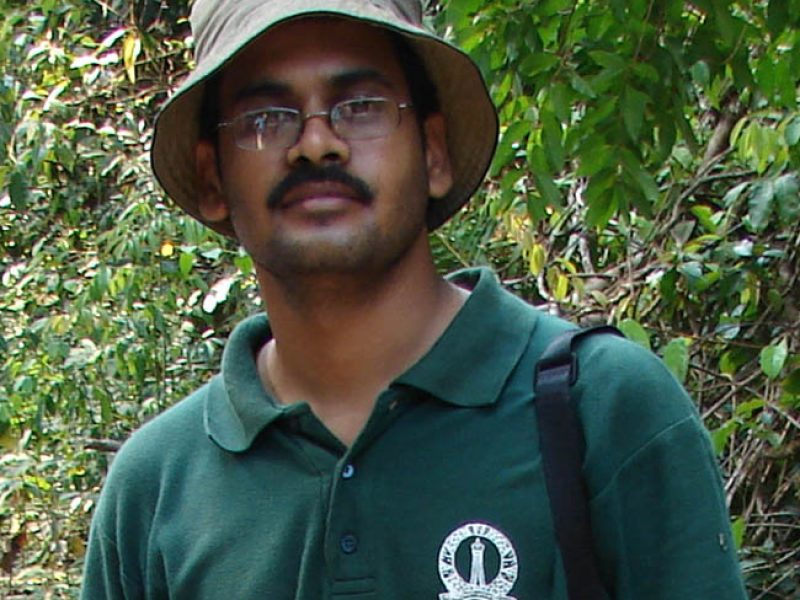
“I am a batrachologist, studying anurans of the Western Ghats of India for the last 20 years. My work covers topics such as systematics, behavior, ecology, bioacoustics and landscape ecology. Working with amphibian researchers in India, I was able to discover 21 new frog species and described 3 novel breeding behaviors. Review of dancing frog family in India, breeding behaviour and parental care in bamboo breeding frogs and nights frogs some of highlights of the research. I received the Karnataka State Biodiversity Award for Excellence in 2016. I am part of the team that developed the first ever Android App on amphibians of India (Frog Find) and worked towards developing a Citizen Science Program called Frog Watch, India.”
Dr. Krishan Sharma
Save Environment and Welfare of Animals
India
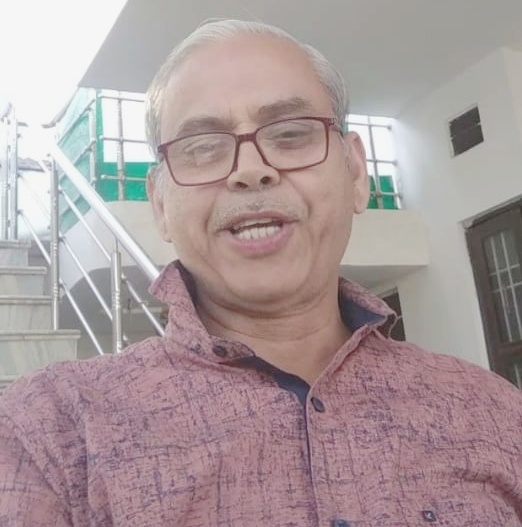
Dr. Krishan Kumar Sharma served as Professor of Zoology at MDS University in Ajmer, Rajasthan, with a particular interest in Herpetology. He completed his postdoc in Germany and the USA and has designed bioacoustics based systems for automated identification and monitoring of anuran amphibians. Dr. Sharma has post-graduate teaching experience of over four decades in India and abroad.
“My best wishes for the 2020 World Summit. I participated in the 2019 World Summit at Kolkata, India and have regularly organized Save The Frogs Day events in India since its inception.”
Dr. Federico Kacoliris
La Plata Museum - CONICET
Argentina
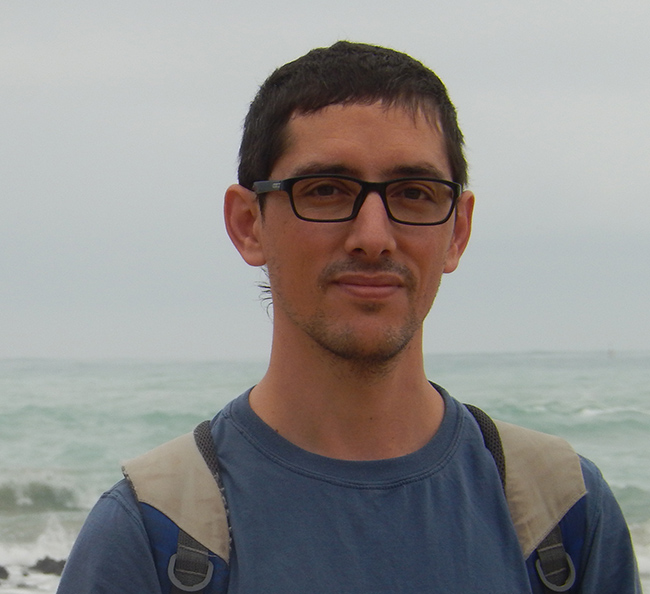
I am a motivated and enthusiastic person with a clear goal: to save endemic and endangered species from extinction. Between 2004 and 2008, I conducted my Ph.D. research on the Conservation of the Sand Dune Lizard (Liolaemus multimaculatus, IUCN-Endangered) in coastal dunes of Argentina. Between 2008 and 2012, I led the main field conservation actions in the Conservation Project of the Blue-throated Macaw (Ara glaucogularis, IUCN-Critically Endangered) in Bolivia. Since 2013, I have been fully dedicated to the conservation of the El Rincon Stream Frog (Pleurodema somuncurense, IUCN: Critically Endangered); the Laguna Raymunda Frog (Atelognathus reverberii, IUCN-Vulnerable) and the Patagonia Frog (Atelognathus patagonicus, IUCN-Critically Endangered) in Patagonia. I reported the results of our research and conservation actions in a dozen scientific and public articles. In this frame, I participated in the creation of the first Amphibians Rescue Centre in Argentina where I established a captive breeding population of El Rincon stream frogs, which enabled me to conduct the first successful reintroduction of this species. I’m working in the Herpetological Lab of La Plata Museum; and I’m also Professor at the National University of La Plata, where I teach Population Ecology. I am an active member of the Argentinean Herpetological Association (AHA) and the IUCN-SSC Argentinian Amphibian Specialist Group.
Dr. Karthikeyan Vasudevan
Council of Scientific and Industrial Research - Centre for Cellular & Molecular Biology
India
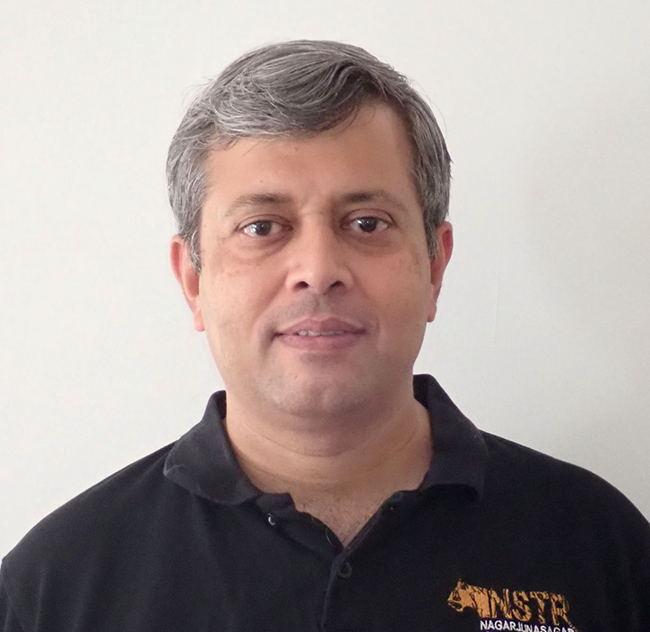
I am a herpetologist, deeply passionate about conservation of amphibians and reptiles. I have been engaged with frog studies for the last 25 years. I am interested in sharing my experience and understanding with youngsters so they can take up conservation themselves. I spoke at the 2019 SAVE THE FROGS! World Summit in Kolkata and am happy to take part in the 2020 event.
Beth Pratt
National Wildlife Federation
USA
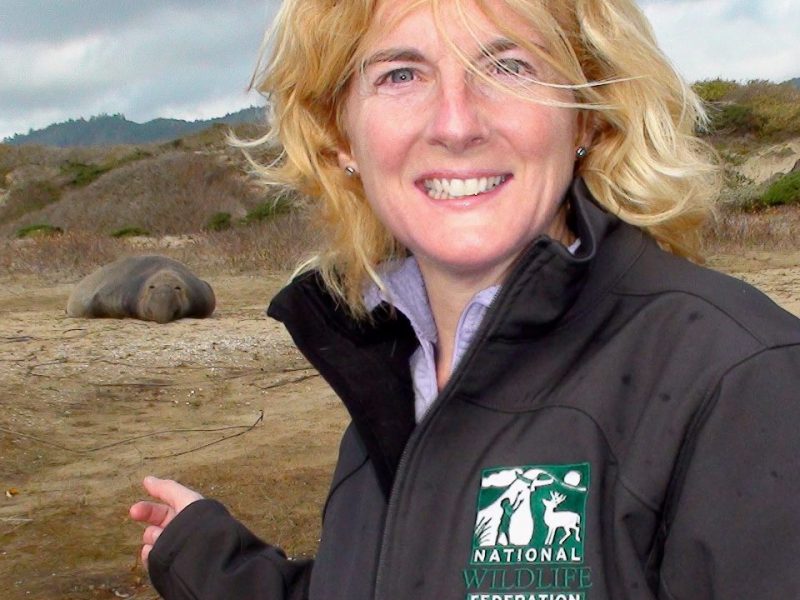
Although she is known as the “cougar lady” in Los Angeles, backyard frogs were her first childhood animal crush, and she used to name them all George. As a lifelong advocate for wildlife, Beth has worked in both Yosemite and Yellowstone, but claims as the California Regional Executive Director for the National Wildlife Federation, “I have the best job in the world—advocating for the state’s remarkable wildlife—and trying to improve the dating lives of LA cougars (of the cat kind).” She leads the #SaveLACougars campaign to build the largest wildlife crossing in the world, and her conservation work has been featured by The New Yorker, The Wall Street Journal, Washington Post, BBC World Service, CBS This Morning, the Los Angeles Times, and NPR. Her book, When Mountain Lions are Neighbors was published in 2016, she has given a TEDx talk, “How a Lonely Cougar in Los Angeles Inspired the World,” and she is featured in the documentary, “The Cat that Changed America.”
Sandra Owusu-Gyamfi
SAVE THE FROGS! Ghana
Ghana
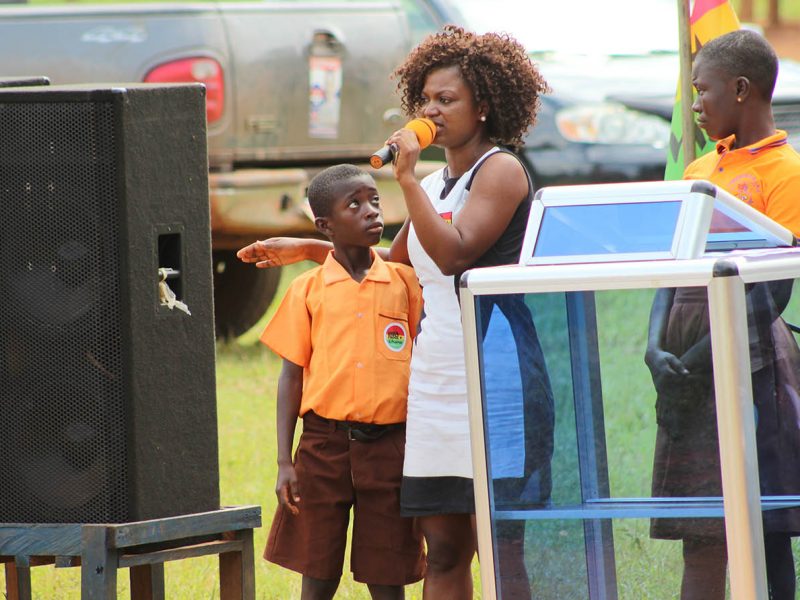
Miss Sandra Owusu-Gyamfi is SAVE THE FROGS! Ghana’s Advocacy and Campaigns Director. She has worked as the main contact person and advocate for the creation of Atewa National Park for the past 7 years, strategizing and coordinating activities. Sandra is West Africa’s first and only consistent female amphibian conservation scientist, navigating between research, education and campaigns for SAVE THE FROGS! Ghana. She holds a Master’s Degree in Environmental Conservation from the University of Greenwich (UK) and a Bachelor’s Degree in Environmental Science from Kwame Nkrumah University of Science and Technology (Ghana).
Animesh Ghose
University of Quebec in Abitibi-Temiscamingue (UQAT)
Bangladesh / Canada
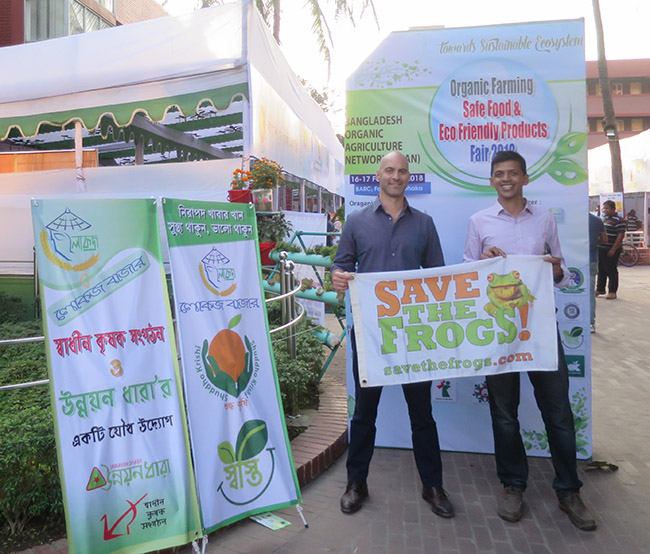
Animesh has been working in the field of the conservation since 2011. He began his journey with the study on the amphibians and reptiles which extends to mammal later. He is interested in community ecology and behavioral ecology. Besides this, he is also interested in the numerical ecology and has received several trainings on the application of R, ArcGIS and QGIS softwares.
Biraj Shrestha
UC Santa Cruz
USA / Nepal
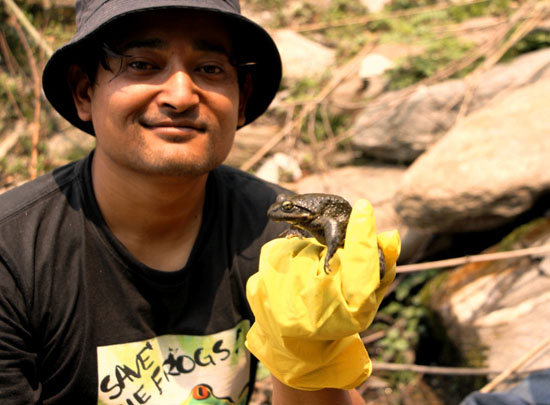
Biraj Shrestha is an ardent amphibian lover from a small town in Nepal. He grew up watching the frogs play in a puddle in his backyard and rejoiced at rumbling frog croaks during rainy nights as his lullaby. His love for frogs and reptiles led him to the conservation sector after obtaining a first master’s degree in Environmental Science. He has been a long time volunteer for SAVE THE FROGS!, and has carried out research and conservation projects from lowlands to the higher mountain belts of the Himalayas in Nepal. He has educated thousands of people by holding Save The Frogs Day events in Nepal since 2013. He has published research papers on frogs, writes about frogs in his blog and other outlets, produced amphibian conservation outreach materials, showcased his work as an invited speaker in symposiums, and has been interviewed about his amphibian conservation journey. Biraj was awarded the title ‘Future Leader of Amphibian Conservation’ in 2017 during the Amphibian Conservation Research Symposium at the University of Kent, Canterbury, UK. Currently, he’s pursuing a second master’s degree in Coastal Science and Policy at the University of California, Santa Cruz where people call him ‘Amphibian Nut’. He’s also affiliated with the IUCN ASG South Asia region.
Víctor Acosta-Chaves, M.Sc.
University of Costa Rica
Costa Rica
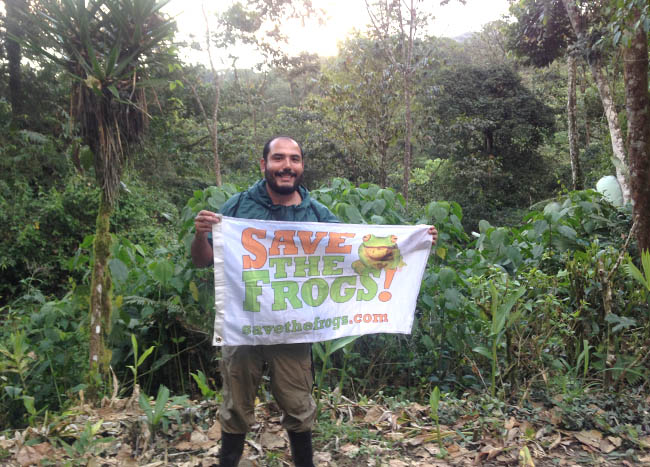
Víctor Acosta Chaves is a Tropical Biologist with a Masters in Biology from the University of Costa Rica. He has published several articles about amphibian and reptile ecology, and has provided dozens of photos to field guides, books and papers about amphibians and reptiles. He has participated as an expert on Costa Rican amphibians during IUCN Red List workshops, as as a journal referee for several journal about herpetology. Víctor has also organized SAVE THE FROGS! workshops and has accompanied SAVE THE FROGS! Ecotour groups as an amphibian expert.
Steven Allain
Cambridgeshire & Peterborough Amphibian and Reptile Group
United Kingdom
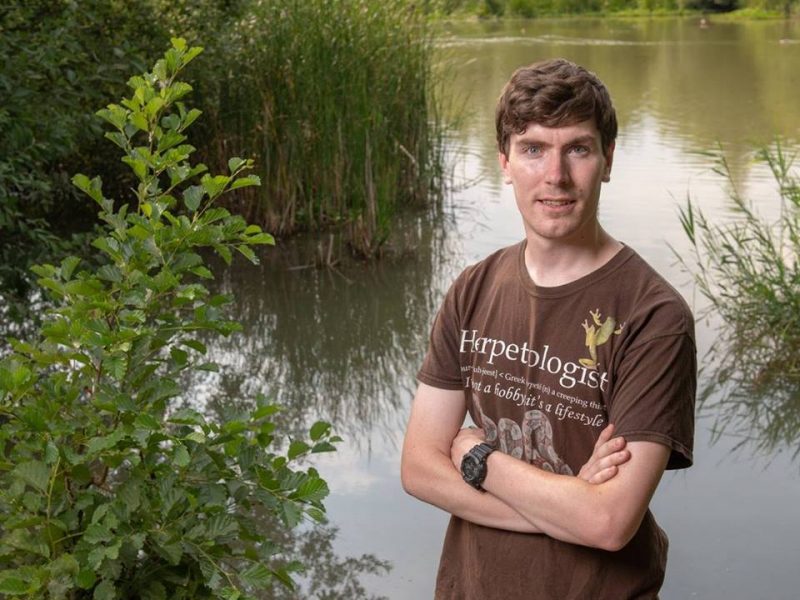
Steven is a current Ph.D. candidate at the University of Kent where his research focuses on the population dynamics of the barred grass snake (Natrix helvetica) and the effects of ophidiomycosis (Ophidiomyces ophiodiicola). Steven holds a B.Sc. in Zoology from Anglia Ruskin University and an M.Res. in Ecology, Evolution and Conservation from Imperial College London. Steven’s main academic interests have been amphibian and reptile population monitoring and the influence of disease. Since 2018 he has been on the council of the British Herpetological Society and is intrinsically linked to amphibian and reptile conservation in the UK.
Sally Petrella
Friends of the Rouge
USA
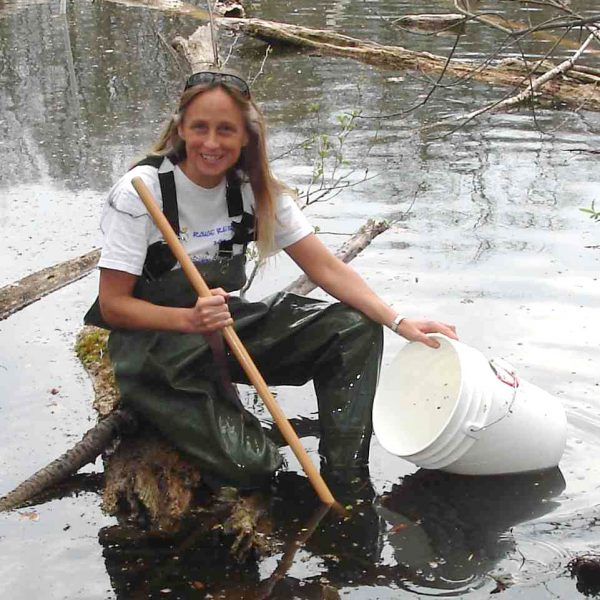
Sally Petrella has been engaging residents in citizen science for 20 years as the Watershed Monitoring Manager at Friends of the Rouge. She has overseen a volunteer listening survey for frogs and toads since 2001, growing participation to as many as 600 volunteers. It is one of the most concentrated surveys in the nation as it takes place in an urbanized watershed with scattered pockets of amphibians. Sally holds a M.S. in Biology from the University of Michigan. She also manages fish and benthic macroinvertebrate monitoring.
“I remember being so impressed by Sally Petrella’s training session, I left thinking this was an organization I’d really like to be a part of.” – Kathy Ableson
Sarbani Deb (Nag)
WISH Foundation & SAVE THE FROGS! India
India

I have conducted amphibian surveys in Sikkim and Darjeeling Himalayas and have published papers and popular articles in blogs and newspapers. I spoke at and helped organize the 2019 SAVE THE FROGS! World Summit in Kolkata and celebrated Save The Frogs Day 2019 with more than 100 participants from 10 schools. Since then, we have conducted awareness programs in more than 10 schools across West Bengal, India and have engaged students in various activities related to amphibians.
David Montiel
Habitat 4 The Future
Mexico
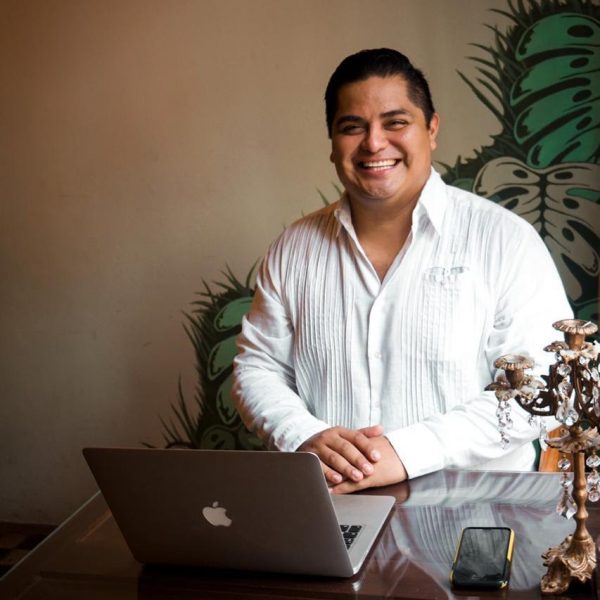
David Montiel is a Mexican biologist who has organized various SAVE THE FROGS! events over the past decade and is extremely skilled in engaging the public in environmental issues. He is the Founder of Habitat 4 The Future.
Biólogo mexicano, con especialidad en Educación Ambiental y Conservación de fauna silvestre. Fundador del movimiento Habitat 4 The Future.
Luis Castillo Roque
NGO GRUPO RANA
Peru
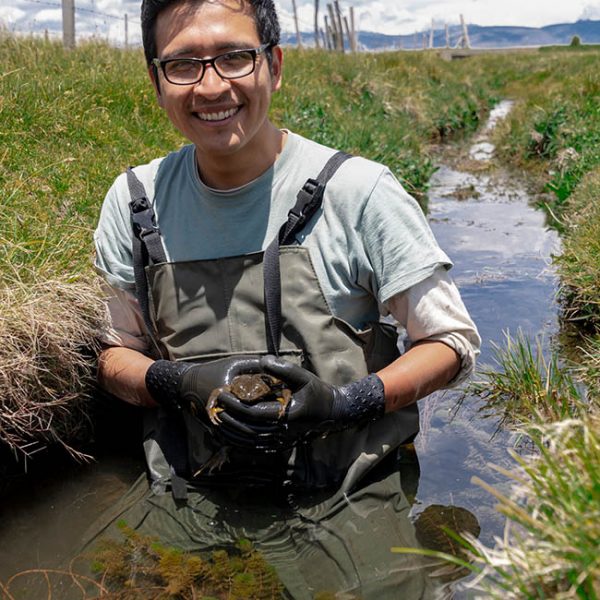
I am a biologist and Masters student in biodiversity and ecosystem management. I am research director and co-founder of NGO Grupo RANA; project coordinator for Denver Zoo; collaborator researcher in San Marcos Natural History Museum and a member of the Amphibian Specialist Group. I was a National Geographic Explorer in 2018 with research on endangered frog presence in the center of Peru. Now, I am beginning activities in citizen science with local people to increase frog populations.
Suman Sapkota
Friends of Nature, Nepal
Nepal

Suman Sapkota completed a masters degree in Zoology (Ecology and Environment) from Central Department of Zoology, Tribhuvan University, Nepal. He actively participates in different herpetofauna research projects, with a particular interest in amphibians’ diet. Suman was a presenter in the International Youth Conference in Science, Technology and Innovation in Kathmandu and the International Owl Festival in Nepal. He is passionate about amphibian research and the conservation of Nepalese frogs.
Avalon Jade Theisen
Conserve It Forward
USA
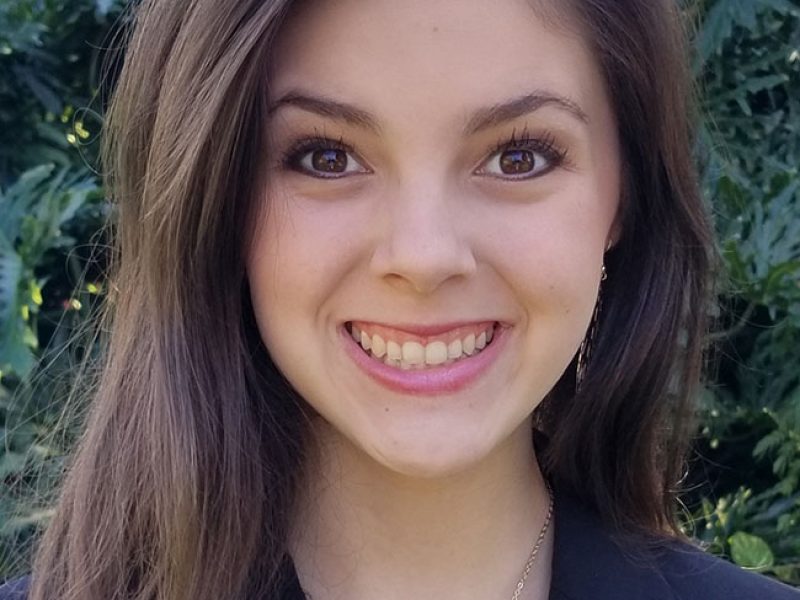
A passionate changemaker with 10+ years of service to people and planet, Avalon Jade is dedicated to empowering others to Conserve It Forward for a sustainable future. Avalon Jade was just a child when she first realized she could make positive, effective change. Her efforts resulted in the creation of a non-profit organization (Conserve It Forward), as well as many well-attended Save The Frogs Day events in Florida. Encouraging the use of kindness and compassion to confront global issues, she has traveled the world to share her message and work alongside others.
Amanda Cooper
Californian Frog Saver
USA
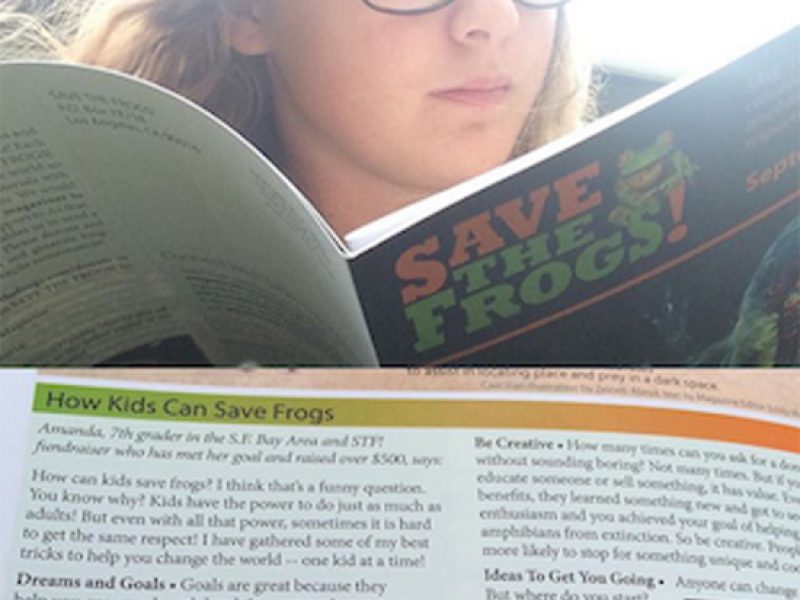
Amanda Lou Cooper is a junior in high school and has been involved with SAVE THE FROGS! since they were 11 years old. Cooper has fundraised thousands of dollars, built wetlands, and raised significant awareness for the cause. Cooper is also an activist for the LGBTQ+ community and has worked to improve the lives of LGBTQ+ youth at schools and around the world. Cooper is extremely passionate about making change in the world, whether it’s social or environmental, and is excited to share knowledge and tips with you!
Anuj Shinde
HerpClub
India
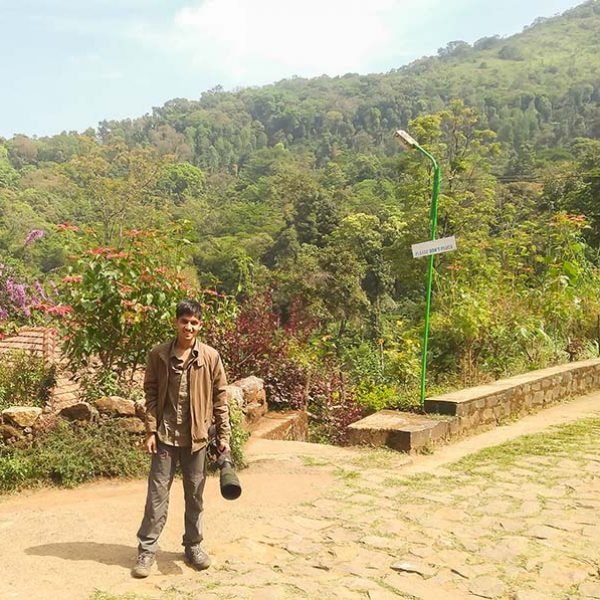
Elliot Connor
Human Nature Projects
Australia
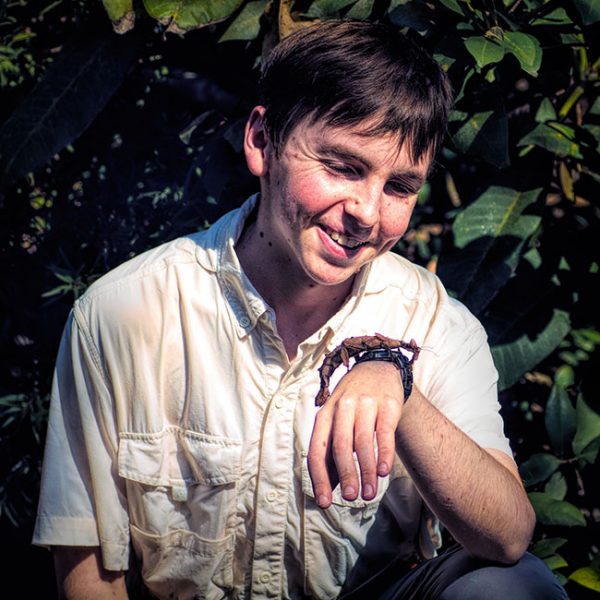
Elliot is a skilled communicator with experience across two dozen charitable organizations. As the Founder and CEO of Human Nature Projects, Elliot displays incredible drive and perspicacity in reframing our human relationship with the natural world. From Quito, Ecuador to Kwa-Zulu Natal, South Africa to quiet Sydney suburbs, Elliot brings his leadership acumen and systems thinking to bear on the most pressing issues of the 21st century.
Schedule Of Events
All Times Are Listed in US Pacific Timezone (Los Angeles)
Dr. Kerry Kriger
April 24th: 12-12:15pm
Welcome to the SAVE THE FROGS! World Summit
Dr. Kriger will give a brief overview of the 2020 SAVE THE FROGS! World Summit Online and also a brief history of past SAVE THE FROGS! World Summits, which have taken place in Ghana, India and online.
Amanda Cooper
April 24th: 12:15-12:30pm
How To Be A Youth Activist
Being young is tough, and even if you have a passion and want to make a difference, it’s hard to know where to start. In this talk I will discuss my tips and tricks on how to make change while still being a student.
Avalon Jade Theisen
April 24th: 12:30-1:00pm
Frog Talk
This presentation includes my service work journey, the importance of frogs, threats amphibians are facing, and, most importantly, easy inexpensive ways anyone can help. The presentation ends with a Human Frog Chorus, which demonstrates how positive change requires all of our voices working together. Information is accessible to all ages and levels of frog knowledge.
Sally Petrella
April 24th: 1:00-1:15 pm
Engaging People To Love Frogs And Toads
People only care about what they know. Most people know little about amphibians. Friends of the Rouge, a non-profit focused on the Rouge River in Michigan, USA has been engaging residents in surveying for calling frogs and toads since 1998. It is a simple yet effective way to teach residents the value of wetlands by providing them a first-hand experience with them. During the COVID pandemic, many more volunteers got involved as listening for frogs was something they could still do and provided solace. In the words of one volunteer: “Few things are more comforting in these times than nature.”
Dr. Federico Kacoliris
April 24th: 1:15-1:45 pm
Recovering The Critically Endangered El Rincon-Stream Frog (Pleurodema somuncurense) In Patagonia, Argentina
With just a handful of isolated populations remaining in the wild, the El Rincon stream frog (Pleurodema somuncurense) is the most critically endangered frog of Patagonia. During the last four decades, the expansion of invasive rainbow trout cornered the frogs to the hot springs of the Valcheta Stream headwaters, limiting its range. But even in these hot springs, where frogs were expected to thrive, they are facing another threat in the form of habitat destruction by trampling and grazing of livestock. Since 2013 we have been working on the recovery of this species. The action plan of this frog, in its first stage, has a goal to double the distributional range and population size of the frog. After eight years of hard work, we are happy to say that we started the recovery of this endangered species.
We faced the problem by:
(1) Creation of sanctuaries at hot springs, which prevent the access of livestock, and where native vegetation is restored;
(2) Reintroduction of frogs in sites where they went extinct, and;
(3) Initiating a trout management plan that is restoring connectivity among isolated subpopulations. We successfully re-established an extinct subpopulation in a restored habitat and also removed trout from 1-km of stream, increasing the available habitat for frogs in 10%.
Our results show that if we continue conducting these management actions, we can move this species outside the brink of extinction.
Steven Allain
April 24th: 2:00-2:30pm
Conservation Of Amphibians In The United Kingdom
The United Kingdom is home to just seven native amphibian species, that face growing threats from climate change, habitat loss and disease. Ongoing conservation efforts are aiming to establish causes for declines, as well as to address them. In this presentation we will briefly explore each of the species and what is being done to help safeguard their populations for the future.
Elliot Connor
April 24th: 2:30-2:45pm
Human Nature: A New Worldview
Does it sometimes feel like the world’s got too many problems? Like you don’t know where to start, or that it’s all too overwhelming? In the ultimate changemakers crashcourse to the 21st century, Elliot will cover everything you need to know about the world right now, where it’s headed and how to find hope in it all. Come together to discuss how small actions produce large impacts and the role communities play in times of uncertainty. Leave inspired to save the world.
The Human Nature worldview expresses the potential in engagement and empowerment of ordinary people - a model termed ‘mass individualism.’ By focusing on key intangibles (Conservation’s 4C’s*) and crafting new modes for messaging, it seeks to reimagine conservation as an open dialogue with revolutionary outcomes. The need is urgent, but all the necessary tools exist. Human Nature is bringing people together for the planet, and letting the planet help the people.
*Conservation's 4C's refers to the intangibles that need measurement in conservation practice: connection, curiosity, creativity and collaboration. A model that essentially refers to the need for more human-oriented outcomes in environmental management: engagement and empowerment of local communities.
Gilbert Adum
April 24th: 2:45-3:15pm
Saving The Last Giant Squeaker Frogs
The Giant Squeaker Frog (Arthroleptis krokosua) is one of Earth's most imperiled species of any kind. There are fewer than 30 known individuals left surviving, and they live only in Ghana's Sui River Forest Reserve. In this presentation, I will talk about the novel interventions SAVE THE FROGS! Ghana has implemented to save the last Giant Squeaker Frogs.
Sandra Owusu-Gyamfi
April 24th: 3:15-3:45pm
Campaigning To Protect Ghana's Atewa Range Forest Reserve From Bauxite Mining
For decades now, Ghana's governments have attempted to mine bauxite at the Atewa Range Forest Reserve, which is the only home to the critically endangered Afia Birago Puddle Frog (Phrynobatrachus afiabirago) and the last viable population of Togo Slippery Frog (Conraua derooi). Mining would entail the complete removal of the topsoil of this rare upland evergreen forest in West Africa, taking with it valuable natural resources and contaminating the streams. In this presentation, I will share with frog lovers campaign efforts by SAVE THE FROGS! Ghana and our partners to block these actions.
David Montiel
April 24th: 5:30-6:00pm
Estrategias De Comunicación Ambiental (Stategies For Environmental Communication)
En una era donde el internet y las redes sociales están accesibles a más personas, se genera cada día mucha información que no siempre es verdadera y que ocasiona en muchos casos, una sociedad mal informada.
Hablaremos sobre estrategias de comunicación de acciones ambientales y de conservación de anfibios, para poder construir una sociedad más informada, educada y responsable con el medio ambiente.
Sarbani Deb (Nag)
April 24th: 6:15-6:30pm
Salamanders And Prospects of SAVE THE FROGS! India
The Himalayan Crocodile Salamander (Tylototriton himalayanus) lives in the high altitude wetlands of Darjeeling Himalayas and is facing existential threats due to habitat fragmentation and other anthropogenic activities. I will be talking about my observation and probable ways out to save the breeding habitats of the species. The second part of my talk will cover the prospects of the newly registered SAVE THE FROGS! India trust which is operational across India.
Dr. Karthik Vasudevan
April 24th: 6:30-7:00pm
Appreciation And Understanding Of Pandemics
As we are in the midst of the throes of a global pandemic - COVID-19, we are bombarded with a huge amount of statistical data on the future of the human health. Since some decades ago, frogs (and more recently salamanders) have been experiencing catastrophic declines due to global pandemic diseases - Chytridiomycosis. The way these diseases have spread and changed the frog communities is difficult to understand. We are collecting bits and pieces of information about the pandemic and the impact it has caused from different parts of the world. I will draw a parallel between the three decade long struggle with Chytridiomycosis in frogs, and our recent spillover COVID-19. I will highlight how lack of awareness and knowledge about pandemics can hugely impact outcomes.
Anuj Shinde
April 24th: 7:00-7:30pm
Indian Batrachology On A Timescale
Since the early 19th century, Indian batrachology (the study of amphibians) has advanced a lot, and a big chunk of recognition goes to the early European taxonomists who worked on India's natural history and laid a strong foundation for future research. In this presentation, we will start from the first amphibian ever discovered from India, move along the timescale and learn about the discoveries of India's endemic amphibians and the problems they face.
Dr. Krishan Sharma
April 24th: 7:30-8:00pm
Current Status Of Frogs In India And Efforts Of SAVE THE FROGS! India In Conservation Of Frogs With People's Participation.
I have been participating in conservation of frogs since last four decades but when I came in contact with Dr. Kerry Kriger a decade ago the speed got accelerated. I have done many awareness programs since the inception of Save The Frogs Day, and also served as President of SAVE THE FROGS! India for some time. Those volunteers trained by my organization continue to do regular amphibian conservation programs.
Beth Pratt
April 24th: 8:00-8:45pm
The Love Song Of The Yosemite Toad
Beth will celebrate the Yosemite toad (an endemic to California's Sierra Nevada) for their sonorous musical trilling that matches any birdsong in spring, and for being an intrepid amphibian who survives in the alpine meadows and even travels over snow to find a mate. You'll also hear about current research on the toad and the challenges, like climate change, that threaten its survival.
Dr. Gururaja KV
April 24th: 8:45-9:00pm
Batracharium - An In Situ Amphibian Education And Conservation Initiative In The Western Ghats Of India
India harbors 452 species of amphibians, which are nearly 6% of global amphibian diversity. The current research trend on Indian amphibians are more focused towards species discoveries and phylogeny, while research on population ecology and conservation of amphibians should now be considered a priority. My presentation is on Batracharium, a novel concept mooted amidst the challenge of amphibian conservation beyond protected areas network in the Western Ghats of India with the involvement of local people. It considers educating and training people towards amphibian conservation. I am hopeful of taking this concept pan India over a period of time, not only to add more area for amphibian conservation, but also to build an educated and informed citizen based conservation movement.
Biraj Shrestha
April 24th: 9:00pm-9:30pm
Improving Public Perception Of Amphibians In Nepal
Amphibians make the popular headlines in news pieces concerned about animals that face rapid declines around the planet. At the same time, amphibians are off the conservation radar in some parts of the world, including Nepal. Why? They live in proximity to humans but are hardly understood as wild animals. To the general public, amphibians are often perceived as cold, slimy, spooky, and by no means cuddly, resulting sometimes in repulsion and intentional killings. Learn what it takes to be an amphibian conservationist in such a scenario. Join my session at the World Summit!
Suman Sapkota
April 25th: 7:45-8:00am
Dietary Niche Overlap Of Two Bullfrogs Of Family Dicroglossidae
Bullfrogs (Hoplobatrachus sp.) are large frogs found in the lowlands of Nepal. We carried out a study of the dietary behavior, niche breadth and niche overlap of two bullfrog species: Hoplobatrachus crassus and H. tigerinus. We found a high degree of dietary niche overlap among these two frogs species thriving in similar habitat. We observed anurophagy in their diet. Niche overlap of frogs is a new study in Nepal. In this presentation I discuss niche overlap and what might be the reasons of species co-existence.
Animesh Ghose
April 25th: 8:00-9:00am
Introduction To R Software
Data analysis is essential to all ecologists and conservationists. Data will be turned into meaningful information if we analyze them in a meaningful way! R is open source software and is widely used as a convenient data analysis tool. This one hour session will focus on:
- Introduction to R and R Studio
- How to write, organize and execute code in R studio with basic mathematical operations
- Data structures (vectors, lists, data frames) and functions
- Getting your data into R
- Data preparation for the analysis in R
- Data exploration with boxplot, barplot and scatterplot
Luis Castillo Roque
April 25th: 9:00-9:30am
Conservation Efforts To Save The Giant Junin Lake Frog In Peru
I am going to talk about activities in education, research and management for recovering frog populations in the center of Peru. Also I am going to explain about our conservation program, organization plan and mission of our young NGO. (Grupo RANA).
Víctor Acosta-Chaves
April 25th: 9:30-10:30am
Case Studies On Frogs From Costa Rica's Middle Elevations
I will discuss amphibian declines at the middle elevations in Costa Rica, and several case studies from different forests where changes in composition have been detected. Also I will add talk about species ecology and conservation.
Dr. Kerry Kriger
April 25th: 11:15-11:45am
Q & A with Dr. Kerry Kriger
SAVE THE FROGS! Founder Dr. Kerry Kriger will answer an array of questions he has received covering a wide spectrum of amphibian conservation issues, and will be available to answer your questions as well.
Dr. Kerry Kriger
April 25th: 11:45am-12:00pm
An Amphibious Closing Ceremony
SAVE THE FROGS! Founder Dr. Kerry Kriger will close out the 2020 World Summit Online with some final thoughts; a summary of important insights gained over the past 24 hours; and will lead a worldwide human frog chorus.
SAVE THE FROGS! World Summit Photo Gallery
SAVE THE FROGS!
World Summit
By The Numbers
21 Speakers From 11 Countries
World Summit speakers represented 11 countries: Argentina, Australia, Canada, Costa Rica, Ghana, India, México, Nepal, Peru, United Kingdom and the USA.
11+ Hours Of presentations
Over eleven hours of amphibious education were delivered over the course of the event.
Zero Waste
No miles were travelled to organize this event and no flights were taken. No conference halls were paid for and no software was purchased. No staff or event planning firms were hired and no materials were printed.
Zero Funding
No grants or sponsorships funded this event, though we do thank all SAVE THE FROGS! donors and members whose ongoing contributions make events like the World Summit possible without external assistance.
Zero Ticket Sales
The SAVE THE FROGS! World Summit Online 2020 and all preceding World Summits have been completely free to attend.
515 Participants from 39 Countries
Participants hailed from Argentina, Australia, Bangladesh, Bolivia, Brazil, Canada, Chile, Colombia, Costa Rica, Czech Republic, Denmark, Dominican Republic, Ecuador, Estonia, France, Germany, Ghana, Guatemala, India, Italy, Mexico, Nepal, Nigeria, Pakistan, Panama, Paraguay, Peru, Philippines, Portugal, Russia, Singapore, South Africa, Spain, Switzerland, Tunisia, Uganda, United Kingdom, USA and Venezuela.
